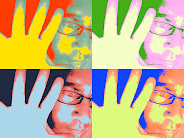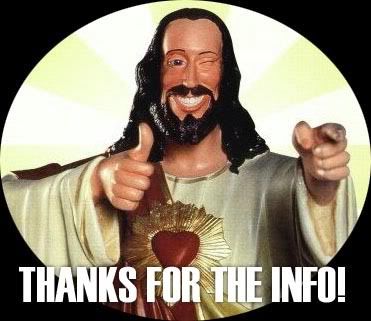
There is a great website called "Ask Philosophers" where you can post your deep questions and a real philosopher (or 2) will answer it. This is the question i asked a few weeks ago in the "Mind" section:
..................
Who is the "I" that is "in control"? I read that in split-brain patients (post lesion of corpus callosum), instructions given in the left visual field - and therefore processed in the right hemisphere - are interpreted by the fluent left hemisphere as being of its own design. If the instruction says "Stand Up", the patient stands up but claims "I decided to stand up" or "I was getting uncomfortable so I stood up". Therefore is the "I" a cheerleader rather than an active player? Should one think of "oneself" as a plurality of agents? Thanks, Real Mensch
..................
Who is the "I" that is "in control"? I read that in split-brain patients (post lesion of corpus callosum), instructions given in the left visual field - and therefore processed in the right hemisphere - are interpreted by the fluent left hemisphere as being of its own design. If the instruction says "Stand Up", the patient stands up but claims "I decided to stand up" or "I was getting uncomfortable so I stood up". Therefore is the "I" a cheerleader rather than an active player? Should one think of "oneself" as a plurality of agents? Thanks, Real Mensch
.....................
Accepted: October 10, 2005 asks: Response from Louise Antony on October 29, 2005
The question of the unity of the self is one that has engaged the attention of a lot of philosophers, particularly in light of phenomena such as the ones you cite. Advances in techniques for investigating the brain have also stimulated philosophical interest. This is all by way of stalling, because, in fact, the question you ask is devilishly difficult and I don't think anyone knows the answer.
Some philosophers have interpreted the split-brain data as showing that there are always at least two seats of consciousness, one in each hemisphere, but that normal conditions make the two "selves" so well-coordinated that there is no evidence of the division. (And the fact that one self gets to do all the talking means that introspection is largely under the control of the left "self.") Other philosophers think that consciousness is unified in normal people, but "splits" if and when the corpus callosum is cut. I find this less plausible than the first position, since it entails either that the original person ceases to exist, or that a second wholly new person comes into existence. Still other philosophers (like Charles Marks) believe that there is only one person in split-brain cases, but that this one person sometimes suffers disunities of consciousness. For an extensive bibliography of philosophical work on this topic, check out philosopher Dave Chalmers's most excellent listing of work in the philosophy of mind. Here are two pages on split-brain research:
http://consc.net/biblio/3.html#3.7d
You might also be interested to know that at least one philosopher has found other reasons than split-brain phenomena to challenge the unity of consciousness. Dan Dennett has famously (infamously) argued that unified consciousness is an illusion -- according to his "multiple drafts" model of consciousness, our mind is a complex of functional parts that respond in various ways to various stimuli. One kind of response involves the development of a "narrative" that unites some or many of these responses into a coherent story; that's what primarily gives rise to our feeling of having a unified self. See his book, Consciousness Explained.
You might also be interested to know that at least one philosopher has found other reasons than split-brain phenomena to challenge the unity of consciousness. Dan Dennett has famously (infamously) argued that unified consciousness is an illusion -- according to his "multiple drafts" model of consciousness, our mind is a complex of functional parts that respond in various ways to various stimuli. One kind of response involves the development of a "narrative" that unites some or many of these responses into a coherent story; that's what primarily gives rise to our feeling of having a unified self. See his book, Consciousness Explained.
Ask Philosophers: http://www.amherst.edu/askphilosophers/question/106
















No comments:
Post a Comment
Whaddaya think?